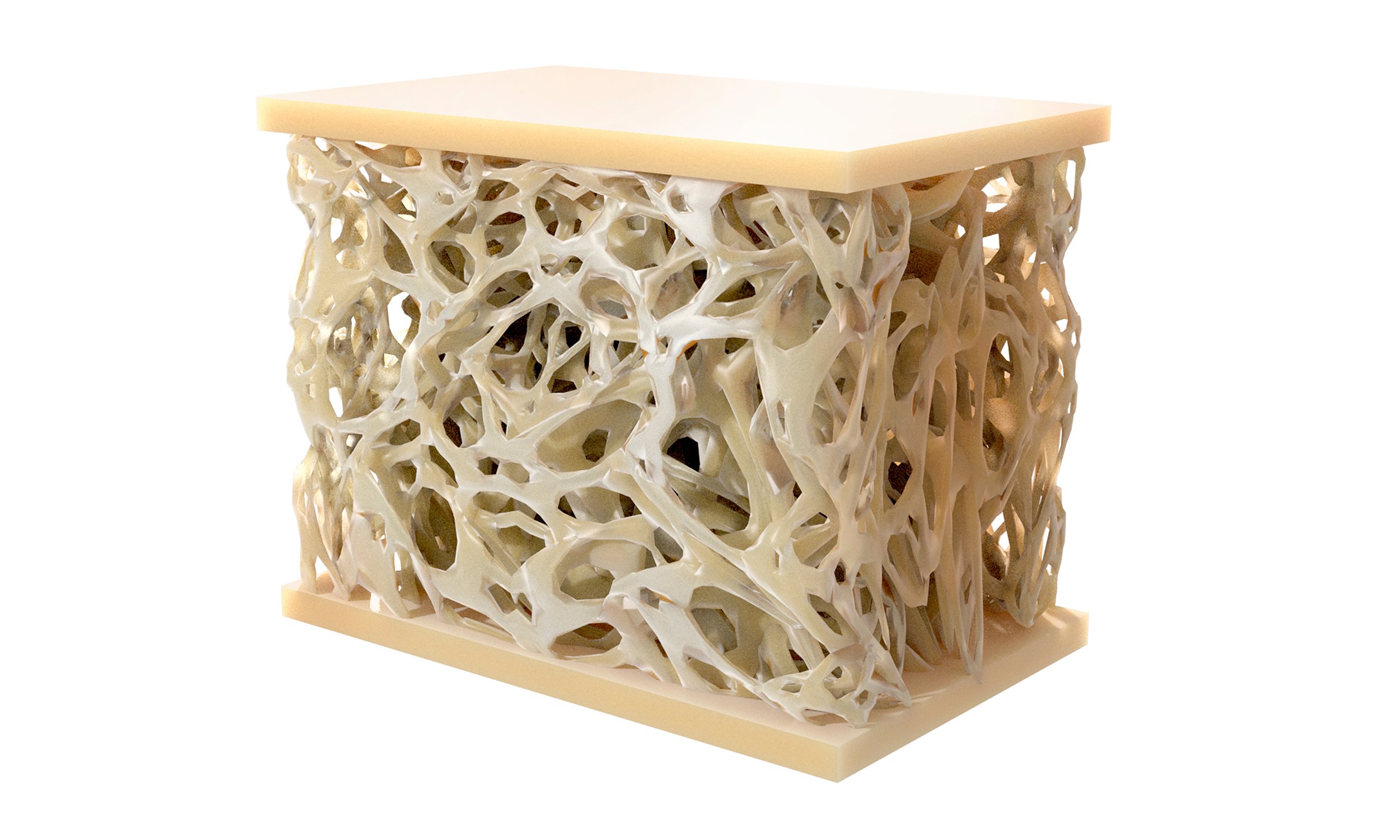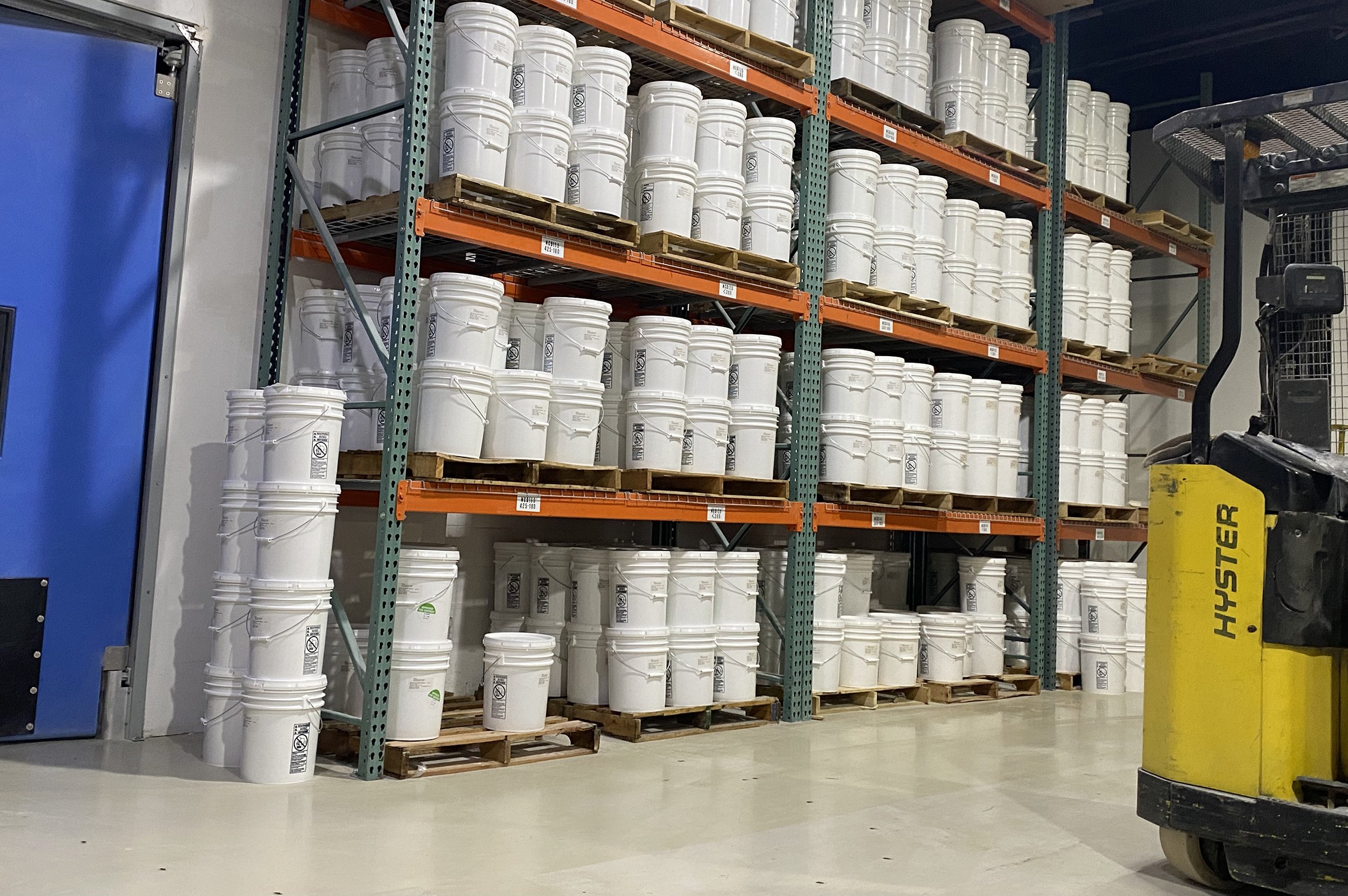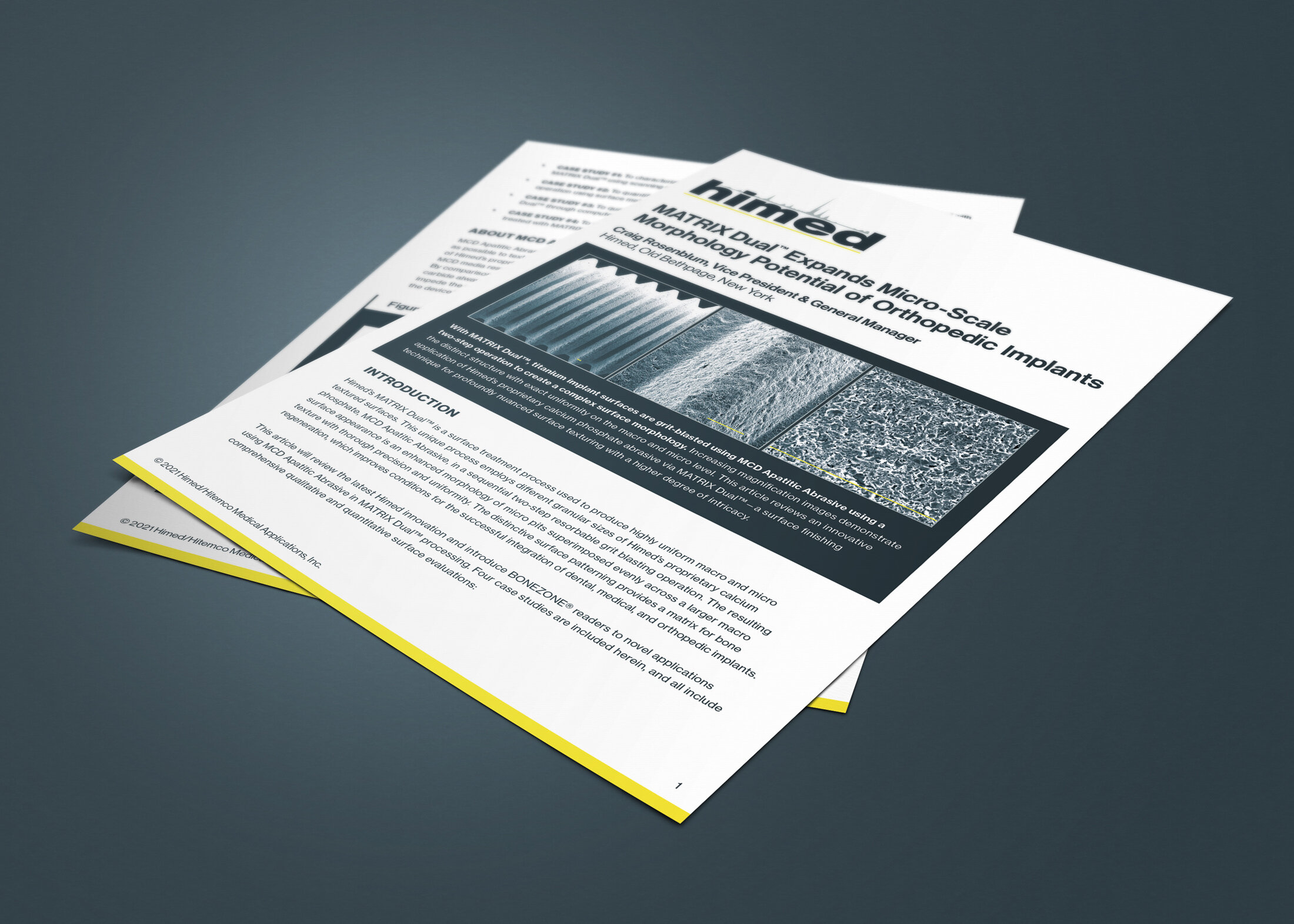
Synthetic Bone Grafting: An Overview of the Process, Terms, and Materials
Bone grafts help bones heal. Common cases that may require a bone graft include severe fractures, jaw reinforcement before dental implants, areas of missing bone due to disease such as cancer or bone infections, spinal fusion procedures, and artificial joint replacement surgeries.
Bone grafting is a dental, spinal, or orthopedic surgical procedure in which a bone replacement material is physically added to the area of missing bone. The goal of bone grafting is to have the patient’s own bone cells grow into the replacement material over time, eventually creating strong, healthy bone.

An Ideal Post-Processing Solution for Additive-Manufactured Medical Devices
Few things have been as potentially revolutionary for the medical device industry as 3D printing. The process allows implant manufacturers to design and produce innovative products quickly and efficiently. But additive manufacturing does introduce a few specific issues medical implant designers and fabricators must take into account.

30 Years In The Making: Himed Gets Its Own Mailing Address
You know that saying, “If it’s not broken, why fix it?” Well, what if something isn’t necessarily broken but could be made better with a few simple changes? That’s exactly the way we saw our address system.
Himed was founded 30 years ago within the facilities of an aerospace coating provider called Hitemco. We’ve since expanded into our own nearby facilities and our business has grown to become a leader in the biomaterials industry.
Yet, through all these years, we’ve been using Hitemco’s shipping and receiving. That setup certainly wasn't broken but we realized we could streamline the process by implementing our own address.

Himed Announces New MATRIX Dual® White Paper Publication
As the medical industry continues to explore the conditions for successful implant integration with the human body, closer attention is being paid to the surface morphology of a given device. That “closer attention” is taken quite literally in our latest white paper. In it, four case studies are reviewed that use advanced scanning technology to characterize—at the submicron and nanoscale level—surfaces treated with our two-step MATRIX Dual® process.

The Best Possible Outcome: The Importance of Post-Processing to Optimize Surface Morphology in Spinal Implants
Here at Himed, we are gearing up for the BIOMEDevice and the NASS trade shows in Boston. So we started asking ourselves what we were most excited about in orthopedic advancements in general, and spinal health in particular. The answer—perhaps not surprisingly for a surface treatment company—are the benefits that patients experience when spinal implants undergo optimizing surface treatments after manufacture.
